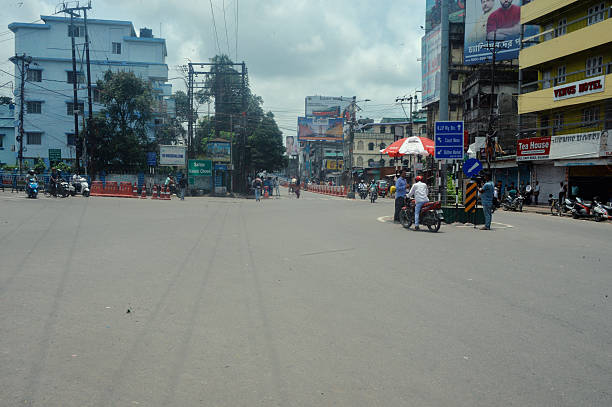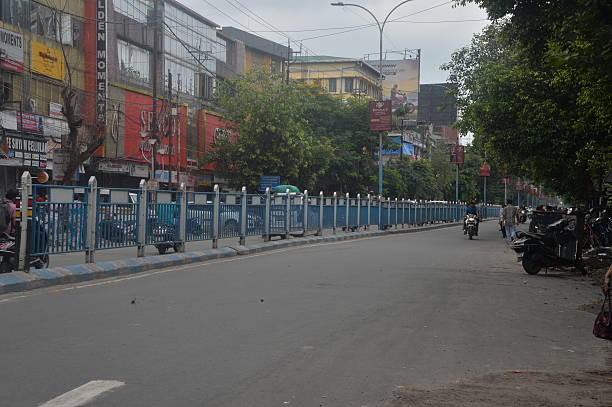On July 9, 2025, India witnessed one of its largest nationwide strikes, commonly known as the Bharat Bandh, led by a coalition of 10 central trade unions, along with farmers’ and rural workers’ organizations. Over 25 crore workers across various sectors participated, protesting against the government’s new labour codes, alleged pro‑corporate policies, rising unemployment, and high living costs.
Why the Bharat Bandh?
The unions accuse the government of:
- Undertaking four labour codes that weaken labour rights and collective bargaining
- Ignoring workers’ voices and pushing pro‑corporate reforms
- Failing to respond to a 17‑point charter of demands submitted to the Labour Minister and halting the annual labour conference for a decade.
Farmers, organized under platforms like Samyukta Kisan Morcha, joined in, demanding relief from inflation, rural distress, and job loss.

Which Sectors Were Hit?
The strike disrupted major services and sectors:
| Sector | Impact Summary |
|---|---|
| Banking & Insurance | Many bank branches and ATMs were affected by staff participation. |
| Public Transport | Buses, metros, and rural transport saw delays/blockades in states like WB, Odisha, Kerala |
| Postal Services & Coal Mining | Operations slowed or halted |
| Electricity & PSUs | Over 27 lakh electricity workers joined, raising concerns of intermittent power outages |
| Education & Private Offices | Mostly remained open, though access issues arose from transportation disruptions |
Geographic Coverage & Local Impact
The Bharat Bandh on July 9, 2025, had a wide-reaching impact across India, with protests reported in nearly every state. In West Bengal, major railway junctions like Jadavpur and Diamond Harbour were blocked by union members, bringing local train movement to a standstill for hours. Kolkata witnessed multiple road blockades near Esplanade and Howrah, severely disrupting daily commuters.
In Karnataka, particularly Bengaluru, the police issued a traffic advisory anticipating mass gatherings near Freedom Park, where nearly 5,000 protestors assembled peacefully. Officegoers faced delays due to barricades and road diversions. Gujarat saw a strong response from banking unions, with around 20,000 employees striking, affecting transactions worth over ₹15,000 crore.
Meanwhile, in Kerala, several trade unions supported the bandh, shutting down services in key industrial zones. Tamil Nadu and Odisha reported partial disruptions, especially in rural transport and coal-mining sectors. Although Delhi and Mumbai witnessed lighter participation, select pockets saw protest rallies. The protest was particularly intense in PSU hubs, where power sector workers and public health employees joined in solidarity.
The unified show of dissent demonstrated how deeply the issues of labour rights, job security, and inflation have resonated with the working class, from metros to remote districts.
What’s Open, What’s Closed?
During the July 9 Bharat Bandh, the country experienced partial shutdowns across several sectors. Banks and insurance offices in major cities like Kolkata, Ahmedabad, and Patna remained closed or operated with limited staff, resulting in ATM outages and service delays. Many government-run institutions, especially PSUs like power and coal sectors, saw significant absenteeism.
However, schools, colleges, and private offices mostly remained open, though attendance dipped due to transportation issues. Public transport was heavily impacted in states like West Bengal, Kerala, and Odisha, where buses and autos either ran infrequently or stayed off roads due to safety concerns. Train services were blocked in select railway zones by protestors.
On the other hand, essential services such as emergency medical care, police, fire services, and hospitals continued uninterrupted. E-commerce and online banking functioned, though delivery delays were reported in protest-hit areas. Overall, while the bandh was not a complete shutdown, its ripple effects were felt nationwide.
Advice for Citizens
Plan ahead: Check local advisories before traveling
Banking options: Use online banking; expect delays in cheque clearances
Commuting: Allow extra travel time and consider alternate routes
Essential services: Emergency medical, power, and police are mostly unaffected.
Key Takeaway
The Bharat Bandh on July 9, 2025, marked a pivotal moment in India’s labour movement, mobilizing over 250 million workers and farmers to challenge government policies they deem unfavourable. With broad participation and significant disruptions, the day reflected deep-rooted worker-farmer dissatisfaction and a unified stand against perceived economic exclusion.

Source..
indiatimes.com